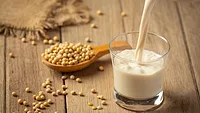Industry Stakeholders Debate EU Regulations for Labeling Imitation Plant-Based Fishery Products

Image credit: cottonbro studio via Pexels
On November 29, 2023, the European Parliament’s Committee on Fisheries (PECH) held a public hearing in Brussels, Belgium to discuss the issue of labeling plant-based imitation fishery products. The purpose of the hearing was to promote debate about the regulation around the labeling of plant-based “fish,” and several representatives from both the fishery sector and plant-based food sector provided analyses of and different perspectives on the topic.
Under current EU law (Regulation 1169/2011), food information must not mislead, and food information must be precise, clear and easily understandable for the consumer. However, as the popularity of plant-based alternatives to meat and fish begin to rise, there is a concern that the law enables labeling and marketing of some products that may mislead consumers.
Yobana Bermúdez, President of the European Federation of National Organizations of Importers and Exporters of Fish (CEP) and Chair of the Market Advisory Council (MAC), cited a 2023 NielsenIQ—Food Industry Association survey revealing consumers’ reported levels of difficulty to understand processed plant-based food product labels. An equal proportion of respondents found it “somewhat difficult” (46 percent) and “not at all difficult” (46 percent) to understand labels on plant-based imitation foods, while 8 percent reported it being “very difficult.” In general, respondents responded with even distribution that understanding labels on plant-based imitation foods required “no effort” (23 percent), “a little effort” (20 percent), “some effort” (36 percent), and “a lot of effort” (21 percent).
The possibility of consumers being misled by plant-based imitation foods due to their labels using the names of traditional foods was likened to food fraud by some presenters. Claudia Benassi, a representative from the Italian Coldiretti Impresa Pesca Confederation argued that fish products are vulnerable to “frauds and imitations” by plant-based products, and called for EU-level regulation to protect products of animal origin from misleading evocations by plant-based imitations. She also called attention to “reverse fraud,” which occurs when non-vegan products are passed off as vegan, due to a lack of clarity under current EU labeling legislation for plant-based foods. On behalf of Coldretti, Ms. Benassi argued that there should be requirements for the marketing of imitation plant-based products to be “fully and unequivocally differentiated from that of products of animal origin, to avoid unfair comparisons between environmental impacts, nutritional values, and other qualitative aspects.”
On the other hand, Rafael Pinto, a Policy Manager from the European Vegetarian Union (EVU), argued that consumers are not confused by labels on plant-based imitation foods using words evoking traditional foods of animal origin. He argued on behalf of EVU that plant-based alternatives can use terms associated with animal products as long as the plant-based nature of the food is made clear, and stated that “consumers are not being deceived, and producers are not trying to deceive.” Mr. Pinto cited a 2020 study suggesting that restrictions on phrases that can be used on plant-based food labels may backfire, as omitting words that are traditionally associated with animal products may “cause consumers to be significantly more confused about the taste and uses of these products.” He argued that EU Regulation 1169/2011 is sufficient and fit-for-purpose when it comes to the labeling and presentation of plant-based food.
Looking for quick answers on food safety topics?
Try Ask FSM, our new smart AI search tool.
Ask FSM →









